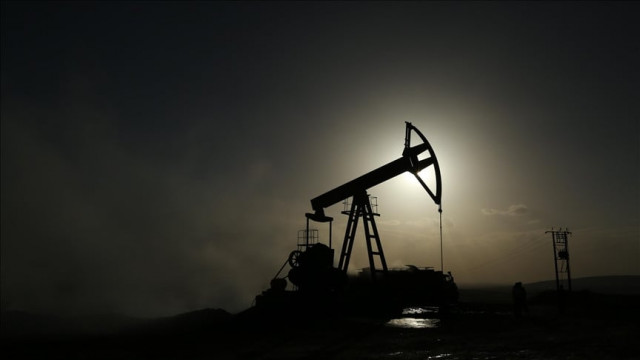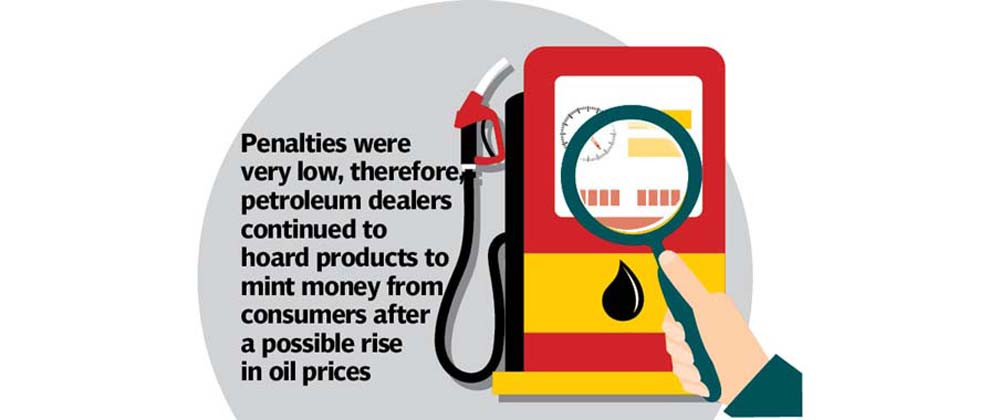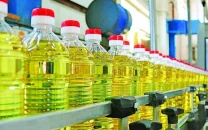Auditors blame regulator, DG oil for shortages
Say both seem reluctant to ensure petroleum stocks are maintained

Auditors have held Oil and Gas Regulatory Authority (Ogra) and director general (oil), Petroleum Division responsible for oil crisis in the country, which has faced such shortages from time to time owing to domestic problems and global developments.
In their report, the auditors pointed out that Ogra granted licences to small oil marketing companies (OMCs), though they had failed to complete the pledged work programme. They were of the view that the oil sector was also facing problems owing to powers given under the Oil Rules 1971 and 2016 to both DG (oil) and Ogra.
DG (oil) convened monthly product review meetings to assess the demand for petroleum products and allocate local and import quotas to the OMCs during financial year 2020-21 but, according to the auditors, both DG (oil) and Ogra were found reluctant to ensure the minimum mandatory storage and stocks of petroleum products.
Ogra issued provisional licences to small OMCs and was found granting undue extensions despite the fact that the companies could not complete their work programme for the development of marketing infrastructure.
The Auditor General of Pakistan (AGP), in its recent report for financial year 2021-22, said that import quotas were issued to some small OMCs, which were utilised only for the benefit of those companies in favourable market conditions, upsetting the demand and supply position. It stressed that structural issues in the oil regime culminated in a countrywide oil shortage in June 2020.
Issues such as the lack of demarcation of legal powers, defective and ineffective punitive clauses requiring a meagre amount of penalties, non-development/ non-maintenance of minimum mandatory storage and stock, product review meeting decisions without legal backing, sale of petroleum products/ smuggled products by illegal petrol pumps, dumping/ hoarding of petroleum products and misuse of IFEM (Inland Freight Equalisation Margin) due to the absence of end-to-end automation and digitisation of reporting of the whole oil supply chain and its monitoring system by DG (oil)/ Ogra have remained unresolved.
It pointed out that port infrastructure for the berthing of vessels and unloading of petroleum products and their transportation to the interconnected storage facilities of OMCs was insufficient to cater to heavy imports.

The AGP report said that three oil piers at Keamari and an oil terminal at Port Qasim would be insufficient after a white oil pipeline was linked with Fotco for both motor gasoline (petrol) and high-speed diesel (HSD).
“These port constraints will cause port congestion, disruption in supply chain and imposition of huge demurrages.”
It highlighted that necessary amendments relating to the enhancement of penalty against major violations by licensees had not been finalised.
The report added that the submission of production programme by refineries and its approval by Ogra, implementation of the approved production programme by refineries, prior approval of agreements relating to supply, purchase, sale and storage of imported products by Ogra and seven-day prior notice for the closure or stoppage of operation with reasons could not be finalised by the Petroleum Division under the Oil Rules 1971 and Oil Rules 2016. According to the report, the oil sector had been facing several issues, which resulted in shortage of petroleum products in the country.
Petroleum dealers had been a major problem that caused artificial shortage. Officials said that the penalties were very low, therefore, the dealers continued to hoard products to mint money from consumers after a possible increase in oil prices.
Moreover, OMCs should be held responsible for any crisis and the companies should take responsibility of the dealers, said government officials.
In the past, Ogra and the Petroleum Division had been shifting responsibility of oil crisis on to each other. The Explosives Department, working under the Petroleum Division, is required to take action by cancelling licences of petrol pumps.
However, its performance has been questionable in the past and no such action seems to have been taken against the dealers hoarding petroleum products.
Published in The Express Tribune, February 12th, 2023.
Like Business on Facebook, follow @TribuneBiz on Twitter to stay informed and join in the conversation.



















COMMENTS
Comments are moderated and generally will be posted if they are on-topic and not abusive.
For more information, please see our Comments FAQ